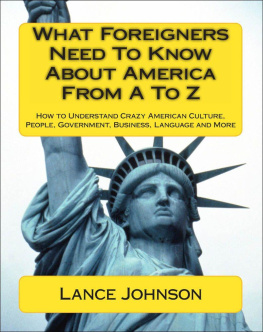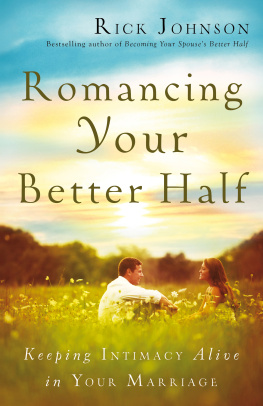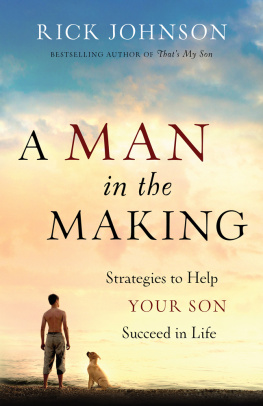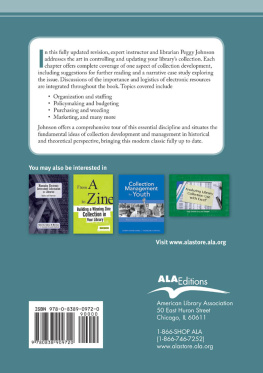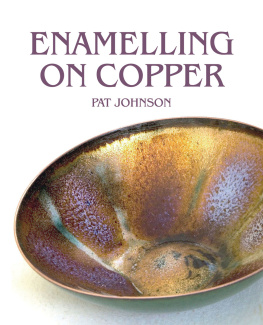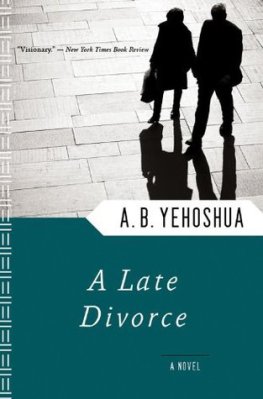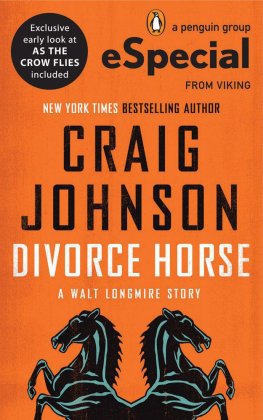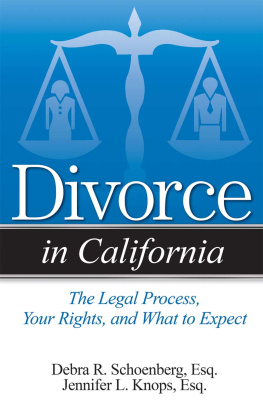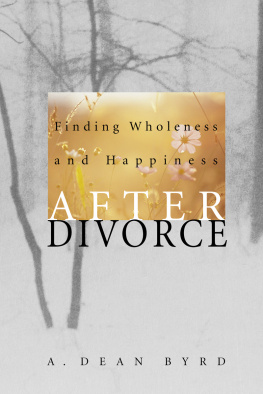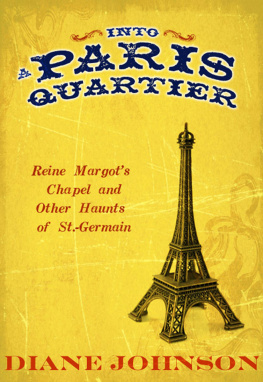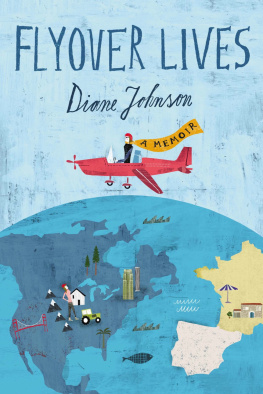This is a work of fiction. Names, characters, places, and incidents are either the product of the authors imagination or are used fictitiously, and any resemblance to actual persons, living or dead, business establishments, events or locales is entirely coincidental.
Le Divorce
A DUTTON Book / published by arrangement with the author
All rights reserved.
Copyright 1997 by Diane Johnson
This book may not be reproduced in whole or part, by mimeograph or any other means, without permission. Making or distributing electronic copies of this book constitutes copyright infringement and could subject the infringer to criminal and civil liability.
For information address:
The Berkley Publishing Group, a division of Penguin Putnam Inc.,
375 Hudson Street, New York, New York 10014.
The Penguin Putnam Inc. World Wide Web site address is http://www.penguinputnam.com
ISBN: 978-1-1012-1303-2
A DUTTON BOOK
DUTTON Books first published by The Penguin Publishing Group, a member of Penguin Putnam Inc.,
375 Hudson Street, New York, New York 10014.
DUTTON and the D design are trademarks belonging to Penguin Putnam Inc.
Electronic Edition: August, 2003
Version_2
ALSO BY DIANE JOHNSON
FICTION
Health and Happiness
Persian Nights
Lying Low
The Shadow Knows
Burning
Loving Hands at Home
Fair Game
NONFICTION
Natural Opium
Terrorists and Novelists
Dashiell Hammett
Lesser Lives
With thanks to our French friends
Especially Colette and Paul S.,
Marie-Claude de B.,
Hlne M., Mireille H., Franoise D.,
and two Amricaines in Paris:
Linda and Michelle.
Man isnt at all one, after allit takes so much of him to be American, to be French, etc.
Henry James to William Dean Howells,
May 1, 1890
I am the doubter and the doubt,
And I the hymn the Brahmin sings.
Emerson
I suppose because I went to film school, I think of my story as a sort of film. In a film, this part would be under the credits, opening with an establishing shot from a high angle, perhaps the Eiffel Tower, panning tiny scenes far below of the foreign city, life as watched from the wrong end of a telescope. Closer up, the place is identified by cliches of Frenchnesspeople carrying long baguettes of bread, old men wearing berets, women walking poodles, buses, flower stalls, those Art Nouveau entrances to the metro that seem to beckon to a nether region of vice and art but actually lead to an efficient transportation system, this contradiction perhaps a clue to the French themselves.
Then, in a series of close shots we become aware that some of the people we are seeing are not French, that among all the Gallic bustle are many Americans. Far from their native land, their flavor changes ever so slightly as they absorb the new perfumes, just as the slightly toxic chemistry of Americans abroad erodes, just a little, the new place in which they find themselves.
Some closeups of individual Americans:
People hanging around American Express (one of them me, Isabel Walker, trying to get money from the Wall Machine).
Two young women in jeans drinking coffee at a cafe. They glare at a man smoking, get up and move to a table farther away, disgust on their blandly pretty California faces. (These are Roxy, my sister, and me, Isabel.)
A well-dressed couple with a camera, having a drink in the Ritz bar, reading maps, swaying with jet lag. These might also be Germans. Germans are the only nationality that can sometimes be mistaken for Americans, even quite close up.
An elegant man reading the Herald Tribune at a sidewalk cafe. He too might be mistaken for European until he carefully removes the butter from the toasted tartine he has ordered, exposed by his pathological American fear of cholesterol.
A handsome, rather stout woman in a mink coat buying oranges at a sidewalk fruit stall. She is speaking French but with a strong American accent. Her brilliant smile does not leave her face, though she is saying, I was disappointed, Monsieur Jadot, with the fraises.
Charles de Gaulle Airport. A sort of space-age place with people arriving via moving conveyor belts in long tubes, pulling out their blue American passports, irritated at being asked to submit to the ritual of identifying themselves. They know who they are.
In fact these are not generic Americans but some of the actual people in my story. The cast of characters. My sister Roxy and I are the two young women who move away from the smoker, the tourists in the Ritz bar are our parents, Chester and Margeeve Walker, newly arrived in Paris to support Roxy in her time of crisis. (Her French husband has left her, she is about to give birth, and we have at stake a large sum of money.) The man in the cafe removing butter from his toast is Ames Everett, one of my employers, but he might be any one of a number of American expatriates living in Paris, elegant and independent and detached, bearing some pentimento of past shame or failure like five oclock shadow along the jaw. The stout woman is the venerated American writer Olivia Pace. The people arriving at the airport are our brother, Roger; his wife, Jane; another lawyer from his firm; and the other lawyers wife.
There are, also, certain ghosts of Hemingway and Gertrude Stein, Janet Flanner, Fitzgerald, Edith Wharton, James Baldwin, James Jonesall of them here for something they could not find back home, possessed of an idea about culture and their intellectual heritage, conscious of a connection to Europe. Europe, repository of something they wish to know, and feel they are entitled by ancestry to know.
All of us are wearing the same expression every American wears here, of wonderment mixed with self-satisfaction at having cleverly removed ourselves from the quotidian discomforts and dangers of life in America while at the same time bravely exposing ourselves to the exigencies of foreign money, a difficult language, and curious food, for instance tripe or andouillette.
Everyone respectful of Roxys condition, and of her grief. Or disappointment might be a better word. Everyone respectful of her bravery in sustaining her great disappointment in life, a chagrin damour that lasts forever.
If we do not find anything pleasant, at least we shall find something new.
Voltaire
I THINK OF life as being like film because of what I learned at the film school at USC. Film, with its fitful changefulness, its arbitrary notions of coherence, contrasting with the static solemnity of painting, might also be a more appropriate medium for rendering what seems to be happening, and emblematic too perhaps of our natures, Roxys and mine, and the nature of the two societies, American and French. The New World and the Old, however, is too facile a juxtaposition, and I do not draw the conclusions I began with. If you can begin with conclusions. But I suppose we all do.
I am, as I said, Isabel Walker, a young woman abroad who, in several months in Paris, has learned enough to be considerably changedand is this not in fact the purpose of young Americans going abroad? To make them think of things they never thought of? I should explain who I was.
I had come to France planning to spend some months babysitting my pregnant sister Roxeannes three-year-old, Genevive (Gennie), reading books in French that I didnt expect to like much (had read a bit of Rabelais in school and thought it was disgusting, with its talk of farts and twats), and under the cover of being a help to Roxy, hoping to get some of my rough California edges buffed off that the University of Southern California had failed to efface. Leaving college (I had not actually graduated) ordinarily points one to the future, whereas France was not the future, it was only temporizing and staving off the day I would have to make real decisions. When I dropped out of college I became aware that the people in my world, usually so understanding and fond of me, had now a certain hardness of expression when asking me what I planned to do, as if they expected a serious and detailed answer, and my friends, as they awaited the results of their MCATs and LSATs, tended to avoid my eyes. Ill be working on my screenplay, I would tell them, and Ill be helping Roxy with her new baby, and I want to investigate the European film scene. But these statements only earned me a moment of silent scrutiny from my inquisitors before they changed the subject.


